We love to dive into history just as much as the next history buff. There have been 46 presidents in U.S. history, each with their own unique strengths, weaknesses and legacies. Some have been revered as great leaders and visionaries (President Woodrow Wilson comes to mind when he signed the act creating the National Park Service). However, some presidents have been criticized for their actions and decisions. Despite this, a handful stand out as being the best of the best U.S. presidents and they’re remembered for their contributions to the country and the world.
When you think about the enormity of the task that is leading the U.S. — including being Commander in Chief of military operations — it can be daunting. New research out of Ohio State University concludes that U.S. presidents with high levels of narcissism tend to govern during prolonged wars, and often put their own selfish interests above the needs of the country. Did the University dare to name examples? Why, yes … Presidents who scored with the highest levels of narcissistic traits include Lyndon Johnson, Franklin D. Roosevelt and Richard Nixon. The study connects their personalities to periods of lengthy wars, aggravated allies and an inability to admit mistakes. Ouch!
And another low blow is age. Researchers in Sweden say the United States is in danger of alienating younger adults because elected officials are getting older and older every year. (Aren’t we all?) Despite making up half of the world’s population, people under the age of 30 lack government representation from people in their own generation. Only two percent of people under 30 have a seat in a legislative assembly! This matters because the underrepresentation may cause democracy to suffer.
When it comes to ranking our leaders, there are many factors to consider. Some people might argue that their impact on the economy, foreign relations or social policies should be the primary criteria, while others might argue that personal character and leadership qualities, or even age, are the most important. Despite these different perspectives, there are five leaders who are consistently ranked by experts and historians as the best of the best U.S. presidents. You may not agree, so feel free to exercise America’s First Amendment right to freedom of speech and leave us a comment.
The List: Best U.S. Presidents, Per Expert Lists
1. Abraham Lincoln
According to VOA, it takes a visionary to come out on top: “The five highest rated presidents, according to the C-SPAN survey, are Abraham Lincoln, George Washington, Franklin D. Roosevelt, Theodore Roosevelt and Dwight D. Eisenhower. And all of them, from John F. Kennedy (8th), all the way up to Abraham Lincoln (1st) created some idealized vision of America.”
Stacker is impressed by Lincoln’s accomplishments, writing, “Abraham Lincoln successfully led the country through the Civil War and paved the way for the abolition of slavery by issuing the Emancipation Proclamation. He is perhaps most noted for delivering the Gettysburg Address, which begins with the famous lines, ‘Four score and seven years ago,’ in which he declares that all men are created equal. Though Lincoln received high marks in all categories of government, historians put him at #1 because of his crisis leadership. He heralded America through the deadliest war in its history while keeping the Union intact.”
“Lincoln has proven to be a consistent favorite, topping all four editions of the Presidential Historians Survey. He issued the Emancipation Proclamation on Jan. 1, 1863, declaring ‘that all persons held as slaves’ within the U.S. ‘are, and henceforward shall be free.’ His highest scores are befittingly in crisis leadership, vision/ability to set an agenda and performance within context of the times,” SiLive.com writes.
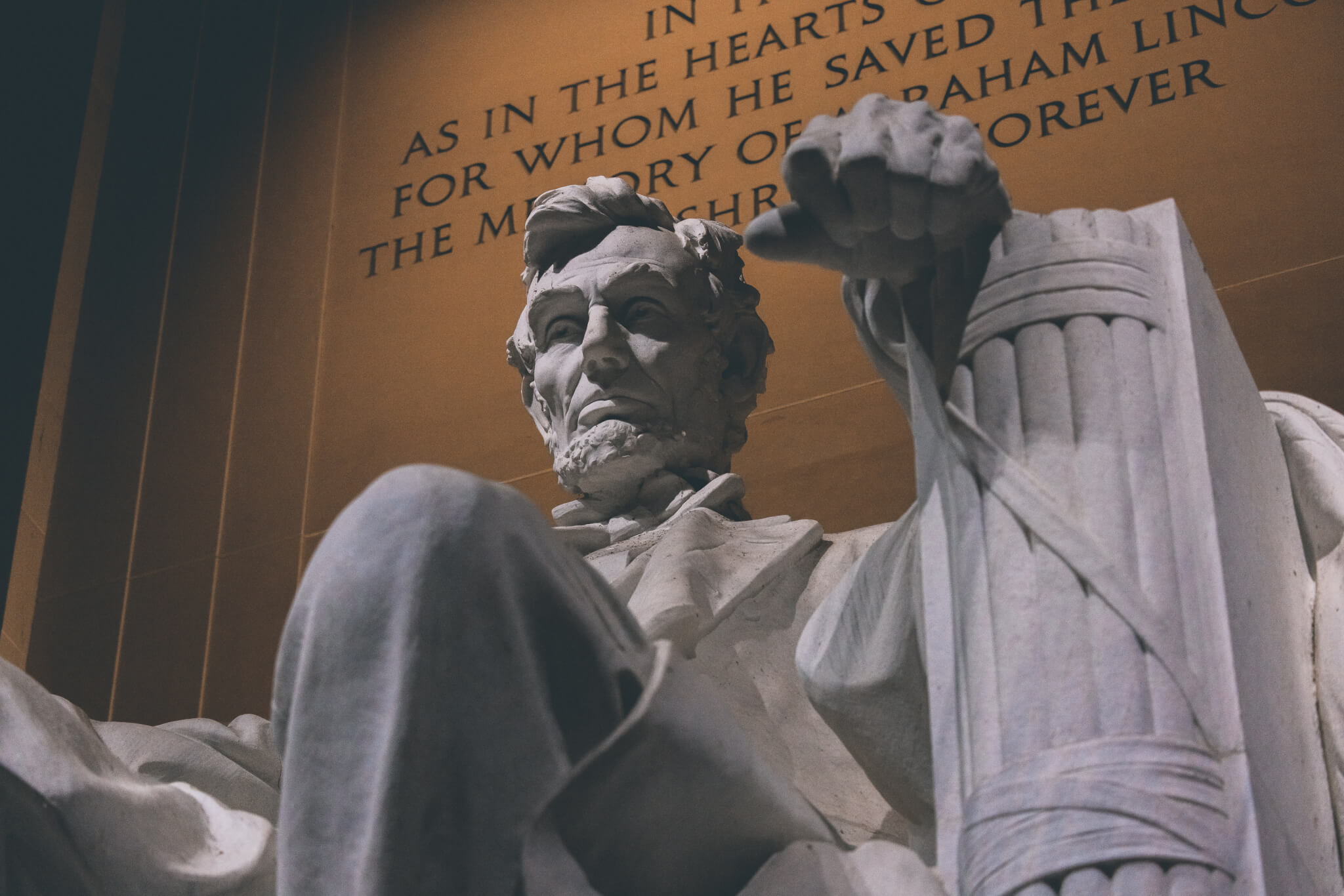
2. George Washington
America’s first president is also one of the top five leaders of all time. Altgov2.org says, “Although America was well on the way to becoming an independent country, it would not happen without George Washington. He got everything off the ground in 1776 and crushed the Newburgh Conspiracy in 1783, and all of this happened before he actually became the President of the United States. His moral authority, economic management, and performance led this very young nation to numerous successes.”
“George Washington ranks highly for his economic management, moral authority, and performance within the context of his times. Washington remains the only president to not have been affiliated with a political party during his time in office,” Insider claims.
And WION reports, “George Washington has occupied the second position on the list of top presidents. America’s first president, Washington, helped nurture the budding democracy by not becoming king and stepping down after serving as president.”
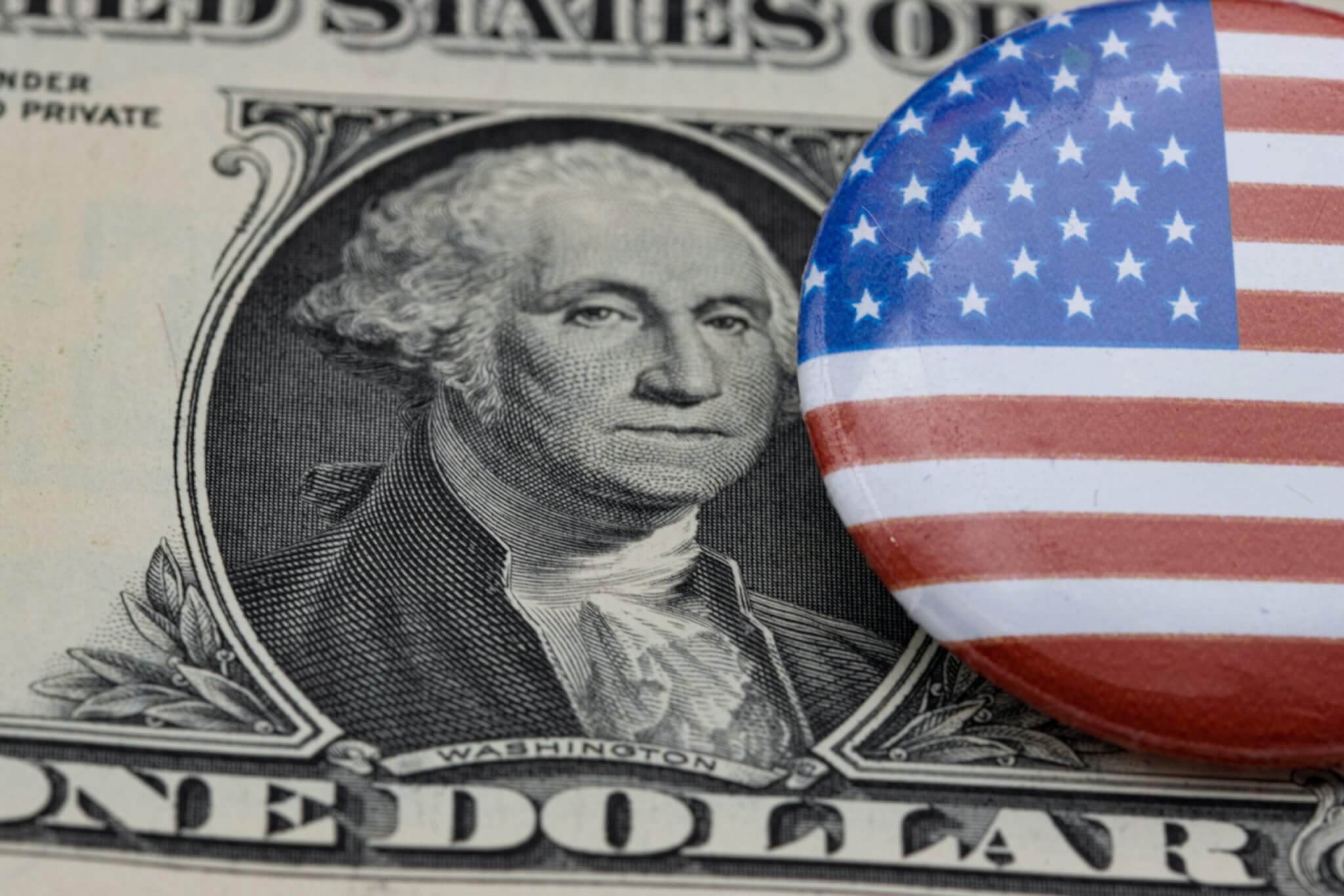
3. Franklin D. Roosevelt
CBS News applauds his efforts in office, saying, “Historians laud Franklin D. Roosevelt for his extraordinary popularity and his devotion to economic justice. FDR assumed the presidency during the worst of the Great Depression, but assured the American people: ‘The only thing we have to fear is fear itself.’ He also led the U.S. through the perilous years of World War II. He is the only American president ever elected to four terms, though he died before completing the last one.”
According to Siena College Research Institute, FDR has been a favorite for a long time: “For the seventh time since its inception in 1982, the Siena College Research Institute’s Survey of U.S. Presidents finds that experts rank Franklin D. Roosevelt, Abraham Lincoln, George Washington, Theodore Roosevelt and Thomas Jefferson as the United States’ top five chief executives. Franklin Roosevelt leads on accomplishments.”
AZ Central ranks him as one of the best presidents, too, writing, “[He’s] best known for his ‘New Deal,’ which created Social Security and reformed the banking system, among other measures.”
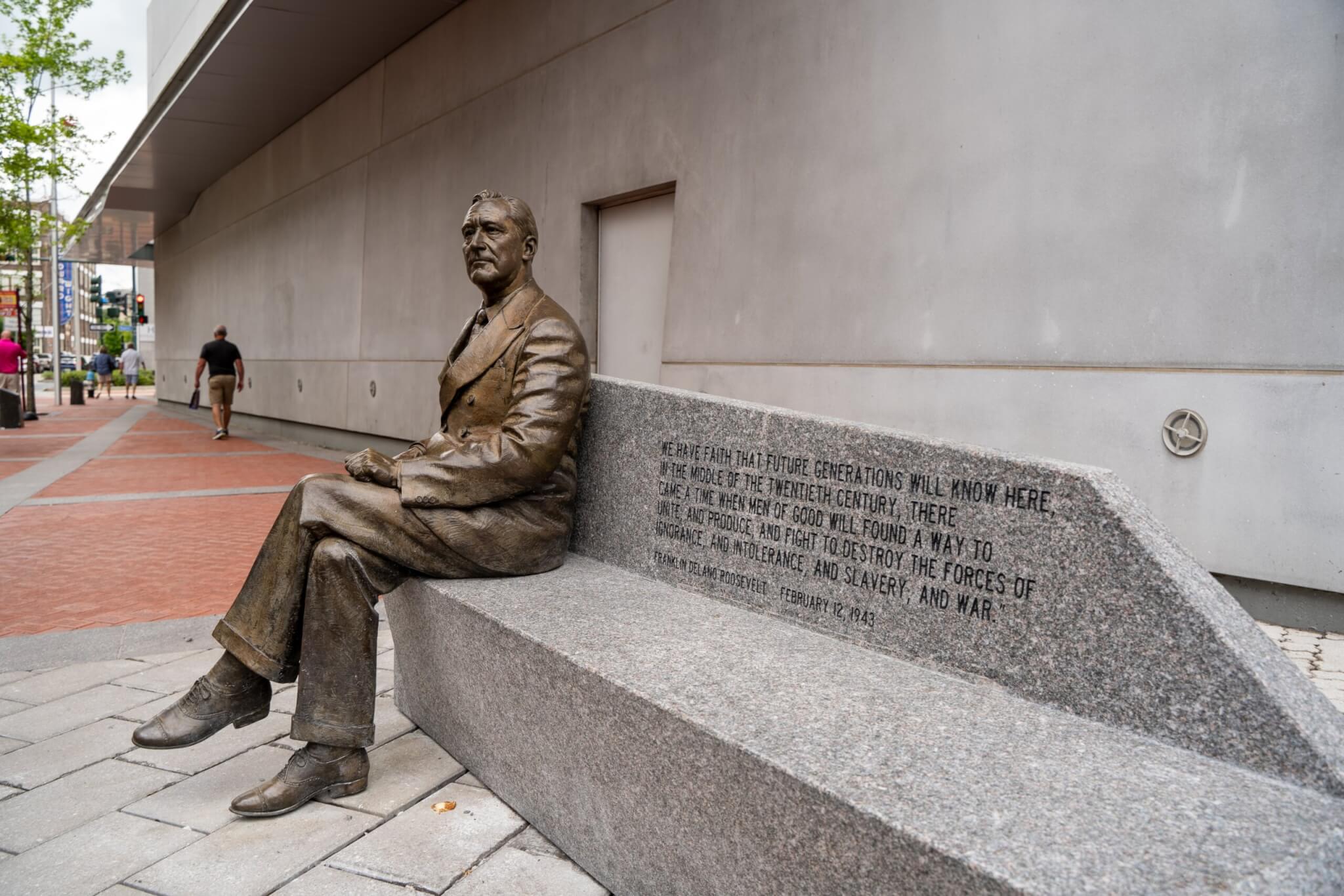
4. Theodore Roosevelt
ThoughtCo. ranks Teddy Roosevelt highly, and here’s why: “Elected at age 42, Roosevelt was the youngest man to take office. During his two terms, Roosevelt used the presidency to pursue a strong domestic and foreign policy. Roosevelt implemented regulations to curb the power of large corporations like Standard Oil and the nation’s railroads. He also beefed up consumer protections with the Pure Food and Drug Act, which gave birth to the modern Food and Drug Administration, and created the first national parks.”
“Roosevelt provided leadership when America experienced rapid economic growth as it entered the 20th Century. He was instrumental in negotiating the construction of the Panama Canal, linking the east and the west. He was known as the ‘trust buster’ for his work to end large corporate monopolies and ensure the rights of the common working man,” National Park Service writes.
And the U.S. Department of the Interior says, “Often called a ‘force of nature’ due to his energetic personality, he helped lay the foundation to protect wilderness and wildlife that shaped American land and culture. As president, Roosevelt created five national parks, 18 national monuments, 51 bird sanctuaries, began the National Wildlife Refuge system and set aside more than 100 million acres for national forests.”
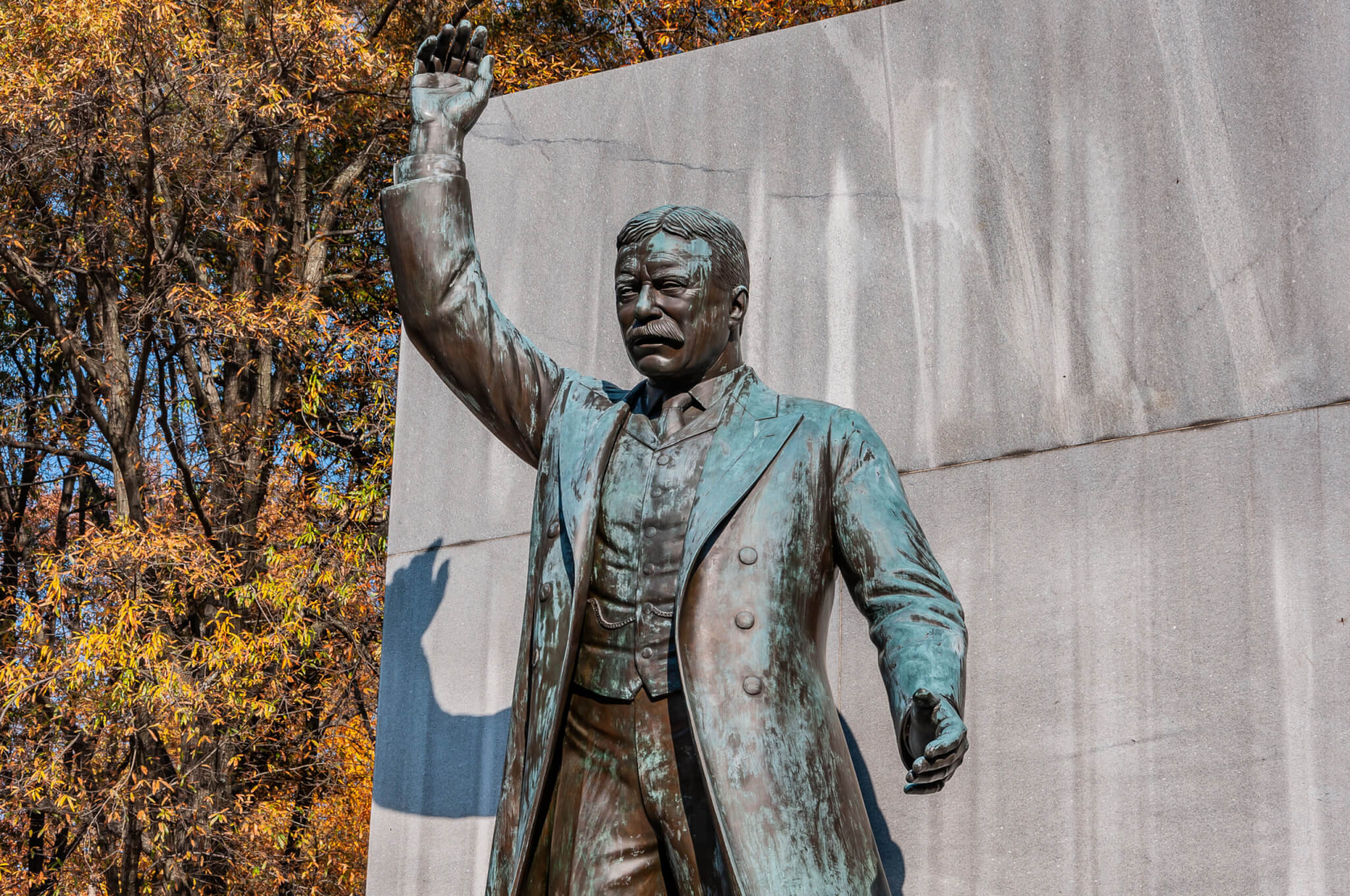
5. Dwight Eisenhower
Kansas Reflector reflects on his presidency and ranks him fifth: “Dwight Eisenhower and Harry Truman played pivotal roles in World War II and remain affixed to one another near the top of C-SPAN’s ranking of U.S. presidents based on leadership. Eisenhower, with a presidential library in Abilene, finished fifth … unchanged from the previous survey of historians in 2017.”
What makes Ike so great? “Eisenhower’s accomplishments seem to be growing in stature, including his strategy for ending the Korean War, overseeing a period of unprecedented prosperity, establishing NASA, signed legislation to create the Interstate Highway System, and the admission of Alaska and Hawaii as the 49th and 50 states. When it came time to vaccinate the American public for polio, Eisenhower stepped forward to encourage all to be vaccinated, and the nation took his advice,” The Hutchinson News reports.
Thought Co. lists his many accomplishments during presidency: “Several milestones in the civil rights movement took place during Eisenhower’s term, including the Supreme Court decision Brown v. Board of Education in 1954, the Montgomery Bus Boycott of 1955-56, and the Civil Rights Act of 1957…In foreign policy, Eisenhower maintained a strong anti-Communist stance in Europe and Asia, expanding the nation’s nuclear arsenal and supporting the government of South Vietnam.”
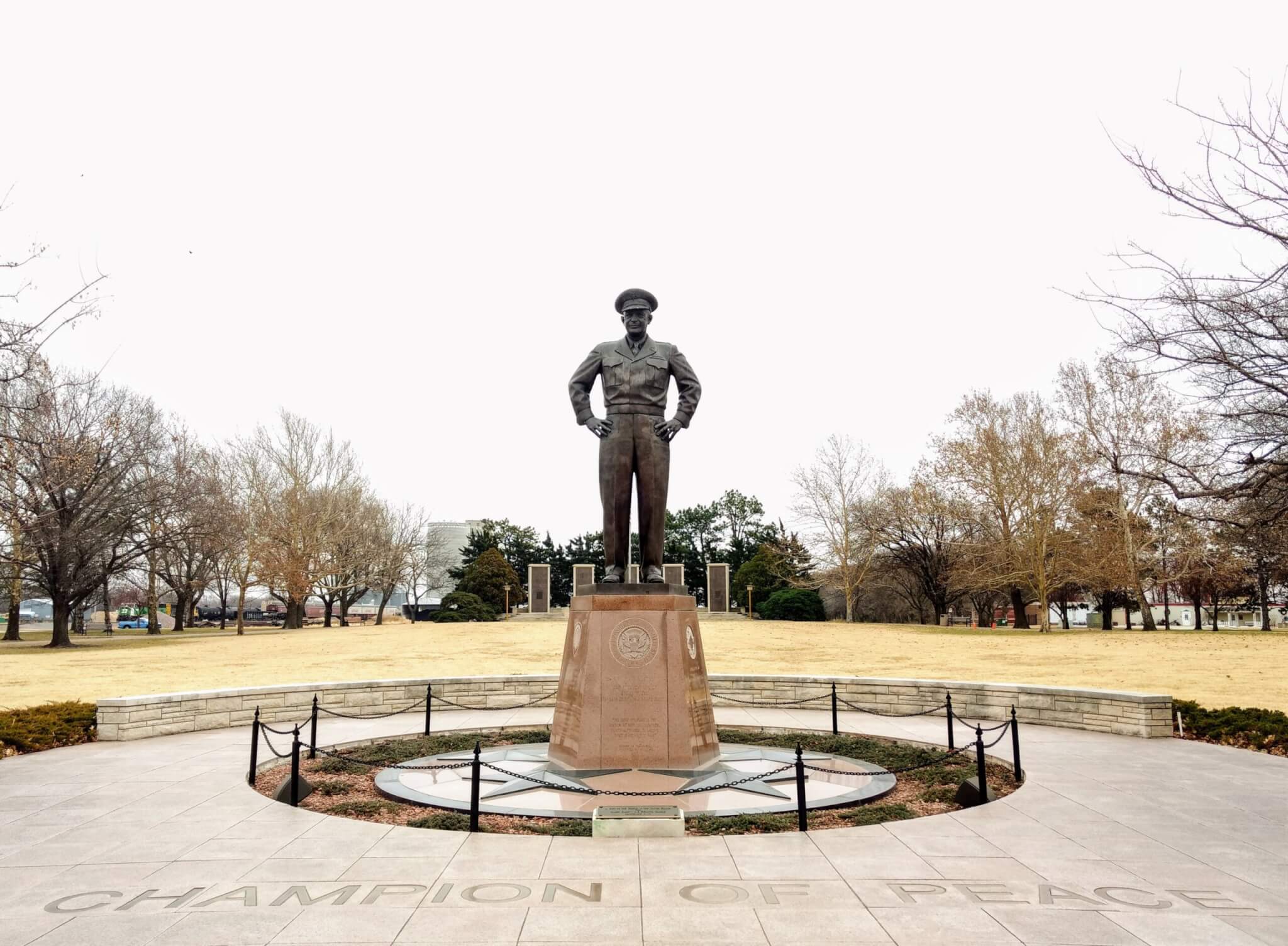
Who would you put in this top five list? Leave us a comment letting us know what you think!
You might also be interested in:
- Best Leadership Books
- Best Art Museums In America
- Best Places to Live in America
- Best Super Bowl National Anthems
Sources
- VOA
- Stacker
- SiLive.com
- Altgov2.org
- Insider
- WION
- CBS News
- Siena College Research Institute
- AZ Central
- ThoughtCo.
- National Park Service
- U.S. Department of the Interior
- Kansas Reflector
- The Hutchinson News
Note: This article was not paid for nor sponsored. StudyFinds is not connected to nor partnered with any of the brands mentioned and receives no compensation for its recommendations. This post may contain affiliate links.
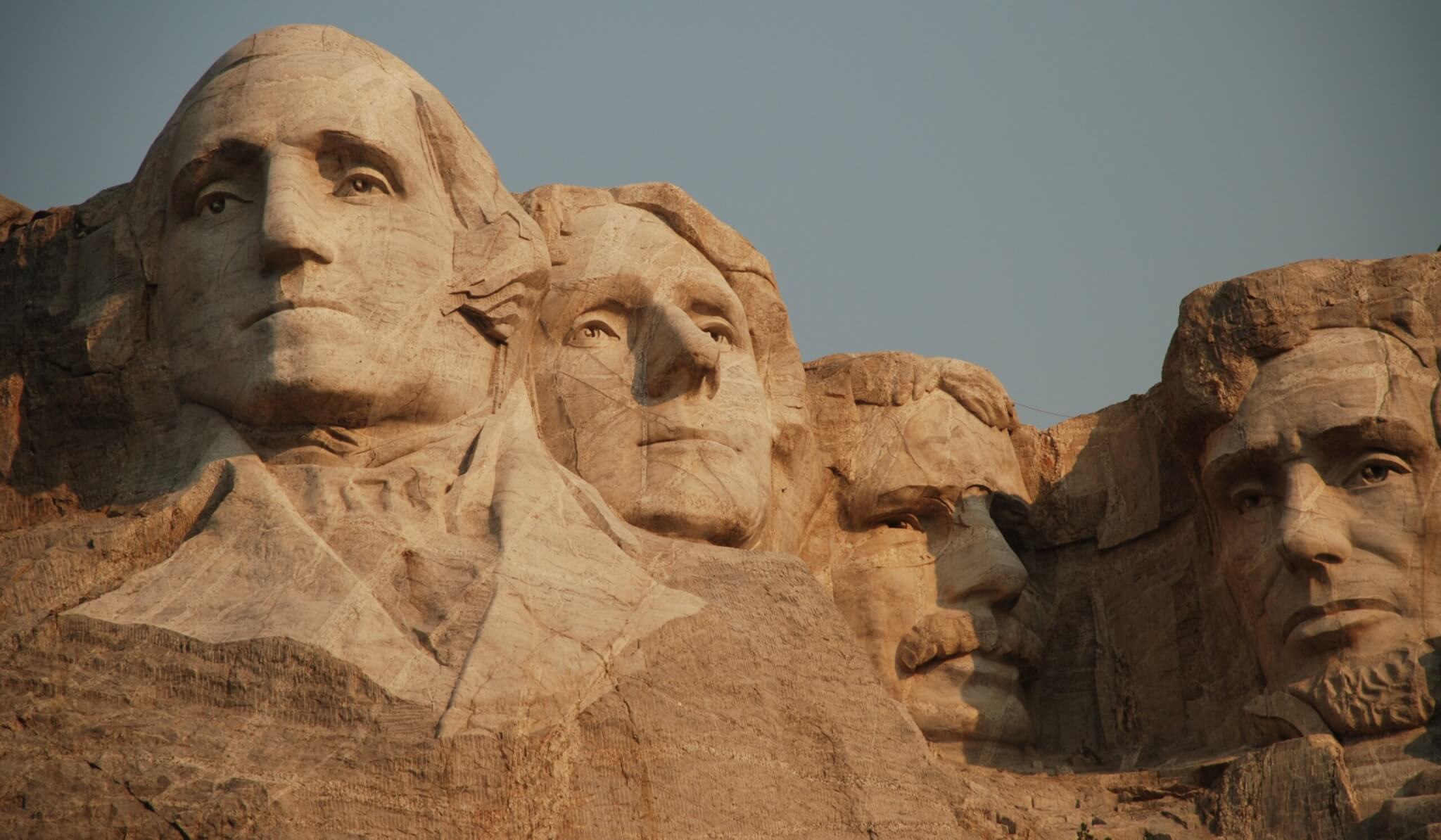
Ronald Wilson Reagan.
Ronald Wilson Reagan…YES! With support of the American people, defeated Communism without firing a shot.
Lol
Those were my TOP 5 commanders picks in the same order. But my favorites are: IKE, OBAMA, and LBJ.
Role Model: GW.
James Garfield and Kennedy could’ve been awesome if not assassinated.
And I like Nixon despite his faults.